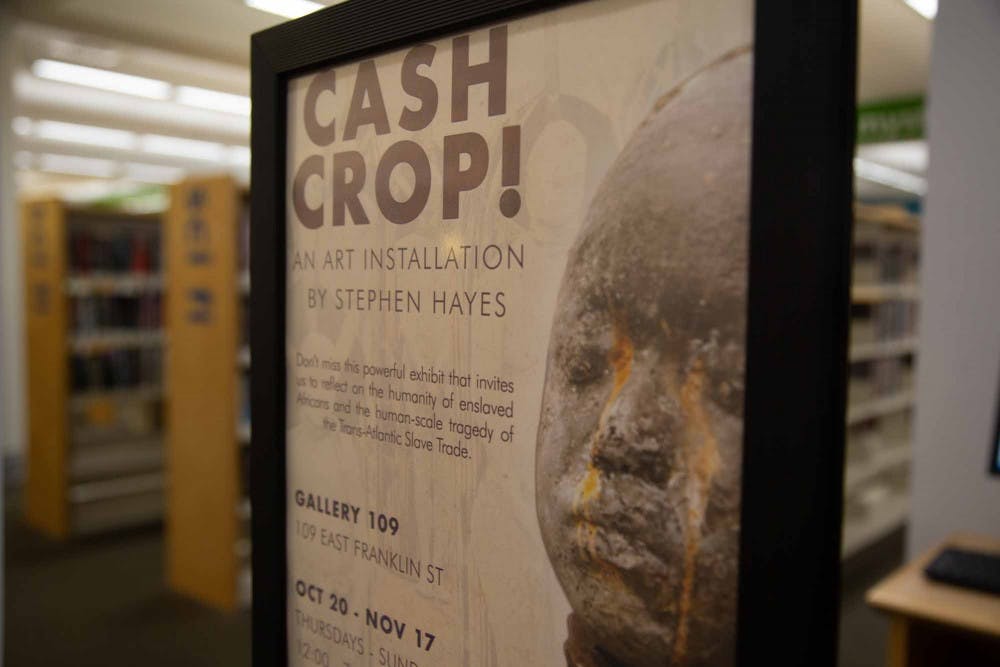UNC and the surrounding communities are set to recognize the anniversary of the year the first ship carrying enslaved Africans was brought to the U.S. in 1619 by hosting two art exhibits.
The Chapel Hill Public Library started hosting the Hampton History Museum’s traveling exhibit entitled "1619: Arrival of the First Africans" on Oct. 18. Susan Brown, director of the library and executive director for community arts and culture, said she was approached by people in the town about the anniversary.
“A few months ago as the sort of national recognition of 1619 started happening, the Town started thinking about what we might do locally,” Brown said. “Actually, I credit police chief Chris Blue who came to me and said, 'You manage libraries and community history and arts and culture for the Town. What are we going to do for 1619?'”
UNC's Sonja Haynes Stone Center for Black Culture and History is sponsoring the exhibit.
"Cash Crop!," an art installation by Durham artist Stephen Hayes, opened in downtown Chapel Hill on Oct. 20. The piece is composed of 15 life-sized sculptures of enslaved Africans in shackles and chained to shipping pallets, and it is located at 109 East Franklin St.
“It struck me of the humanity of the figures,” Brown said. "It really gets you to think about enslaved Africans from 400 years ago as living, breathing people. I think that he touches on that by modeling the figures after his friends and family.”
Hayes said the lack of education he received in school about this topic inspired his work. He also wants to bring attention to sweatshops in other countries.
“It’s about the transfer of goods in the past and present,” Hayes said. “I was inspired by not learning much about the transport of people as a commodity in school. I wanted to tie it to today and how the transport of goods still exists. The pallet represents how we outsource our goods to third-world countries and sweatshops and places that don’t have labor laws.”
Hayes said another goal of the exhibit is to allow viewers to have the physical space to fully experience the art.




